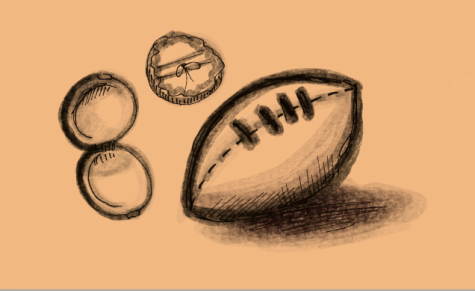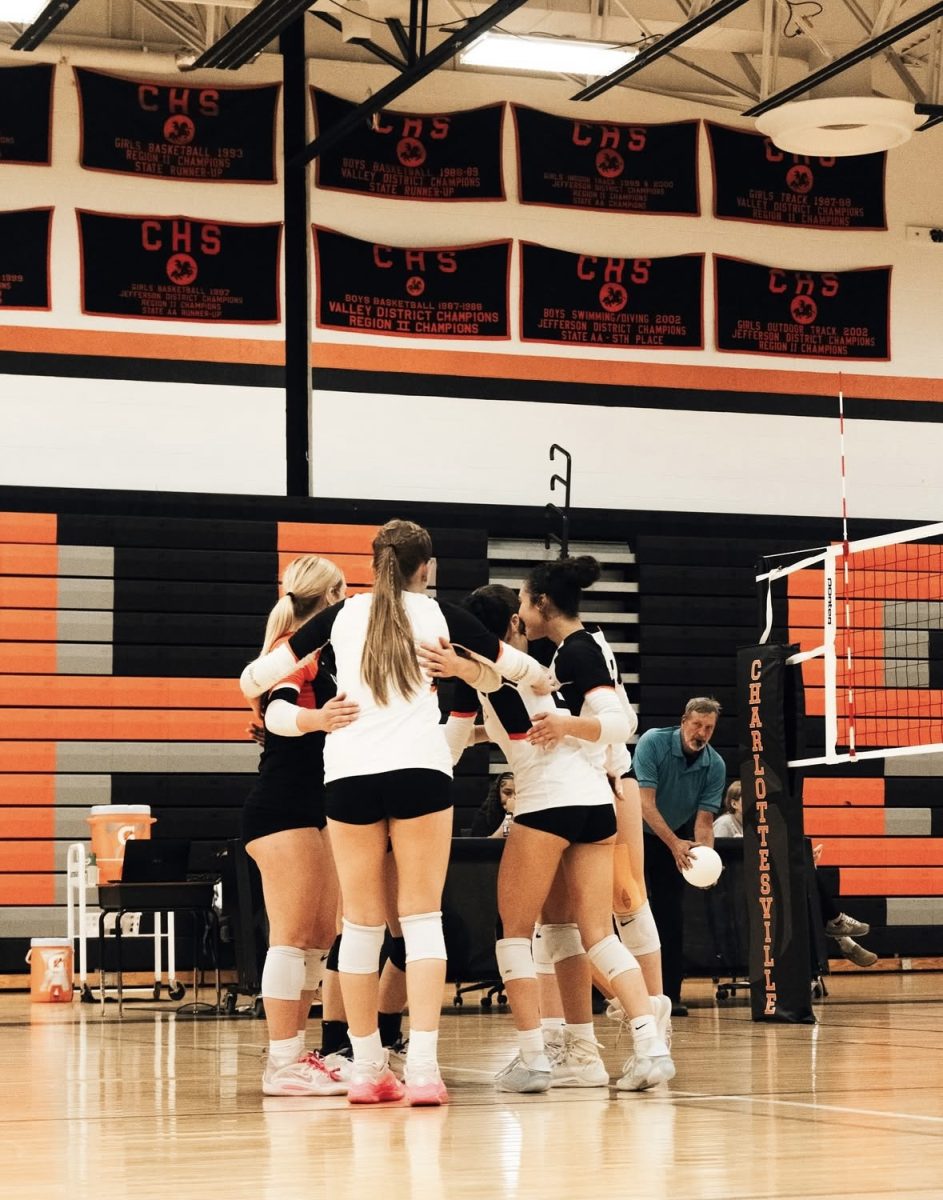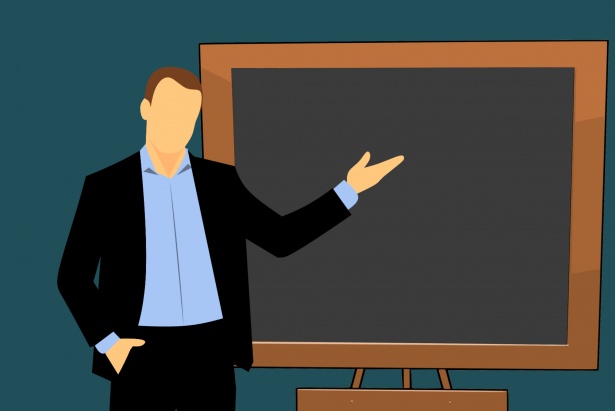How Powderpuff Perpetuates Gender Roles
November 30, 2022

Powderpuff: a beloved and highly anticipated tradition with widespread popularity across the US. What is the history behind the game? Does Powderpuff prevent progress? How can Charlottesville Highschool better execute this event in the future?
At CHS, Powderpuff is a game of flag football between girls of opposing grades. Seniors play freshmen, juniors play sophomores, and winning grades play each other. Powderpuff started in the 1930s, but swept the nation in the 1970s, following the enactment of Title IX in 1972. Title IX protects students from exclusion on the basis of sex from education programs or activities receiving federal funding. At the time, Powderpuff was productive and supportive, offering girls an opportunity to participate in football.
On one hand, the game promotes school spirit, brings grades together, and provides a lighthearted and fun experience. This year, with the hard work of teachers and students, the Powderpuff game brought a lot of people joy. Coach Cherebin, a health/physical education teacher at CHS, sponsored powderpuff and brought a lot of positivity to the game. Powderpuff games encourage women to get out and play sports generally dominated by men, an idea that is crucial, considering the enormous gender disparity still evident in high school and professional athletic scenes.
On the other hand, Powderpuff is criticized for perpetuating gender stereotypes. Maybe not the current motivation behind the tradition, but the immediate purpose of the game is entertainment and finding humor in reversed gender roles. This not only instills said roles but diminishes women in the process. It sustains the sexist idea that women are physically and athletically inferior to men and any attempt to refute that is frivolous and laughable.
Women are encouraged to try playing football while men with little experience teach and coach. Most of the coaches are male students who are not on the football team. This continues to pose the roles that “women don’t play football and men do”. Not only is this regressive in women’s liberation, but it can create unhealthy dynamics between student coaches and players, allowing leeway for disrespect and harassment. Allison Dugger is a current senior at CHS who participated in powderpuff this year. She states that what she and many others felt was the biggest issue was the fact that many of the student coaches didn’t play football and haven’t in the past. She adds: “There’s already an interesting power dynamic happening in an all-girls team with an all-male coaching staff.” Margot Nichols, another senior who played this year, emphasizes: “Just to reiterate, definitely some of our coaches were there to show dominance over the girls on the team and be on a power trip.” Sarah Burns, a current senior who played this year, suggests “a more strict selection process for coaches to make sure that every woman on the team feels comfortable.”
Amarie Anderson, a current senior who played Powderpuff in 2019, remembers rude comments from coaches. She recalls her teammate “getting hurt and crying and them (male student coaches) yelling at her and making fun of her and just not having a single care in the world. It was just a mockery with a complete lack of compassion towards us trying to experience something.” Additionally, multiple girls felt sexualized during the experience, either uncomfortable during stretching or in shorts. One player comments that it “was really frustrating to hear because that’s not what we were there to do. We’re here to have fun; and the fact that I’m not comfortable wearing shorts when they’re athletic wear…” This is clearly not acceptable, school sports and events should always be safe spaces. These behaviors mirror our society’s tendencies to devalue women’s athletic accomplishments by focusing on their physical appearance. They also do not ensure that women and girls have equal opportunities to enjoy the benefits of sports.
Charlottesville Highschool hosts this Powderpuff tradition, being sponsored by the Student Council Association and Mr. Cherebin, with the Administration’s blessing. There needs to be more adult supervision during Powderpuff practice and games so that these issues can be better regulated. This may help another common complaint, the lack of sportsmanship, with name-calling, cussing, and slurs being thrown around between teams. It is necessary to have better organization and management so that Powderpuff can be a welcoming environment for athletes.
Another glaring underlying problem with Powderpuff’s implications is the outdated name of the tradition. The object the name is referencing, a powder puff is a soft makeup product used for the application of face powder. This name mocks and deprecates women on various levels. The usage of naming a sports event meant to empower women after a makeup product belittles women back down to the stereotype they have been confined to. The symbolism of a powder puff specifically implies soft fragility, directly contradicting the rough and violent nature of football. An alternative is simply “Flag Football.”
Powderpuff is a positive and captivating event that builds the school community and offers girls another opportunity to play football. In order to continue this tradition the game needs to adapt to the extent that equality has currently progressed. By improving Powderpuff in this way, CHS can continue to send a positive, welcoming, and progressive message.




